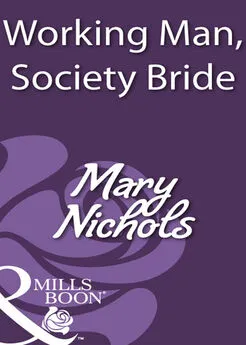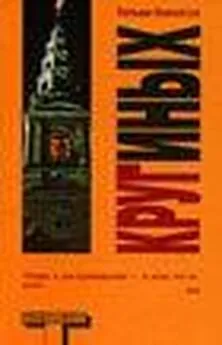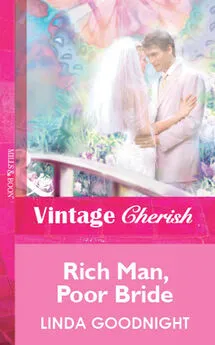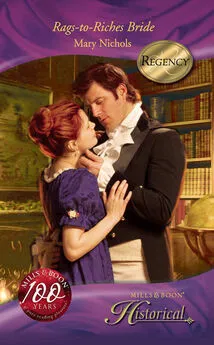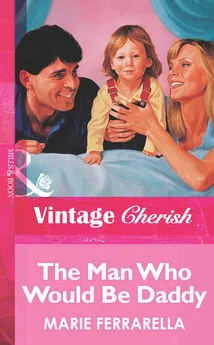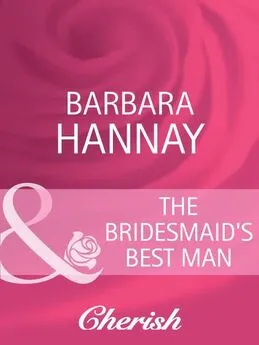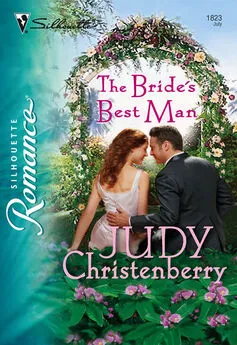Mary Nichols - Working Man, Society Bride
- Название:Working Man, Society Bride
- Автор:
- Жанр:
- Издательство:неизвестно
- Год:неизвестен
- ISBN:нет данных
- Рейтинг:
- Избранное:Добавить в избранное
-
Отзывы:
-
Ваша оценка:
Mary Nichols - Working Man, Society Bride краткое содержание
Working Man, Society Bride - читать онлайн бесплатно ознакомительный отрывок
Интервал:
Закладка:
‘Taffeta, Papa.’
‘What’s wrong with muslin?’
‘Nothing for day wear, Papa, but it is not the thing for dining.’
‘You are getting above yourself, miss, and I wonder at you, madam, for allowing it.’ This last was addressed to his wife.
‘It is not new, my lord,’ she explained. ‘It is one of mine I had remade. That deep pink colour suits Rosie and I thought it would recompense her a little for not having all the new clothes Lucy has had this year.’
Slightly mollified, he grunted and nodded at the footman to begin serving. His economies seemed unnecessary and inconsistent to Lucy. He grumbled about money spent on clothes, yet would never have dreamed of managing with fewer servants, particularly those, like the footmen, who were seen by visitors. He insisted on frugality at family meals, having only four courses, but, when entertaining, the food on his table was lavish in the extreme. His horses were the best money could buy, his hospitality at the annual hunt meeting was legendary, but he begrudged the repairs to his farmer-tenants’ buildings, maintaining that if they let them go to rack and ruin, why should he have to stump up for their negligence?
They ate in silence for some time until Lucy ventured, ‘Did you have a good journey, Papa?’
‘It was as abominable as usual.’
‘Did you come home by road, then?’
‘No, I did not. I came on the railway, but it kept stopping for no reason that I could see.’
‘I expect it was because you went from one company’s lines to another,’ Lucy said. ‘You have to be coupled up to their locomotives.’
‘What do you know of it?’
‘I read it in the newspaper. There was a report about a debate in the Commons about the number of lines being agreed to and Mr Hudson’s plans to amalgamate them so that there is no need for constantly changing in the middle of a journey.’
‘Not suitable reading for a young lady, Lucinda. And Hudson will come to grief, you mark my words.’
‘Why are you so against the railways, Papa? I should have thought they brought enormous benefit.’
He looked sharply at her. ‘What is your interest in them, young lady?’
‘It is only that I journeyed by train for the first time when we went to London and I found myself wondering about them. It is a very fast way to travel. Over forty miles an hour, we were told. It felt like flying.’
‘So it may be, but the countryside where they go is ruined for ever. They run over good farm land and are so noisy they frighten the cows so they don’t produce milk, the sparks from their engines are a danger to anyone living near the line, and they ruin the hunt because the fox can escape on to railway land where horses can’t follow. And that is after all the desecration to the countryside the navvies cause when they are building them. They throw up their shanty towns wherever they fancy and spend their free time drinking and quarrelling. Their children run round in rags with no education and no notion of cleanliness. Does that answer your question?’
‘Yes, Papa. What would happen if a landowner refused to allow the railway to go over his land?’
‘Then they would have to go round it. Now, enough of that. Let us have the rest of our dinner in peace.’
Lucy decided it was definitely not the time to mention seeing the surveyors, and after a few minutes of eating in silence her mother began to talk about their visit to Linwood Park. ‘I do not know how big the house party will be,’ she said. ‘Nor exactly what plans have been made for our entertainment, but we must go prepared.’
‘Naturally we must go prepared,’ the Earl said. ‘There will be riding and excursions, shooting and cards in the evening and undoubtedly at least one ball.’
‘I wondered if you might consent to allow Rosemary to accompany us. The invitation was for the whole family….’
‘Whole family,’ echoed Esme, speaking for the first time. ‘May I go?’
‘Certainly not!’ snapped her father. ‘But I will think about allowing Rosemary to go, if she behaves herself.’
‘Rosemary always behaves herself,’ Lucy put in, winking at her sister. ‘And I shall be glad of her company if we are to be with a crowd of strangers.’
‘They won’t all be strangers,’ the Countess said. ‘Many of them you will already have met in London.’
Lucy did not see the surveyors again and supposed they had either decided she was right about their trespassing or they had finished what they were doing and gone elsewhere. In a way she was sorry because she could not get thoughts of that tall man out of her head. She could see him in her mind’s eye, standing facing her with his feet apart, his hands carefully crumbling soil, his head thrown back and his lively eyes looking up at her. His stance had been almost insolent and she should have been repelled; instead, she found him strikingly attractive. She found herself wondering what it would be like to be held in those powerful arms and, even in the privacy of her room, blushed at the scenario she had created. She must stop thinking about him, because he was nothing but a labourer, a brute of a man used to working with the strength of his broad back, and, though she might be attracted by his physique, he would never fit in to the kind of life she led. He would, for instance, never be at home in a ballroom. On the other hand, Mr Gorridge was to the manner born and knew how to dress and behave among ladies. And Mama and Papa approved of him.
Linwood Park was not above thirty miles from Luffenham Hall and, for a short stretch, their lands abutted, so it was an easy carriage ride to go from one to the other, which was how the Countess and her two daughters travelled, followed by a second coach containing Annette, Sarah to look after the girls and the Earl’s valet, together with all the luggage piled in the boot and strapped on the roof. The Earl decided to ride so that he would have his own horse with him. Lucy would have liked that, too, but he had said arriving on horseback would not create the right impression; if she wanted to ride, she would undoubtedly be provided with a mount from the Viscount’s stables.
The house stood halfway up a hill above the village, which in times gone by had been known as Gorridgeham, from which the first Viscount had taken his name, but was now simply Gorryham. The house, at the end of a long drive, was surrounded by a deer park, an enormous lake, a large wood in which game birds were reared and several smaller woods and farmsteads. Behind the house the land rose to Gorridgeham Moor, shortened by the locals to Gorrymoor, a wild, uncultivated tract of country ideal for riding and hunting.
The house itself was built of stone with a façade at least a hundred feet in length. There was a clock tower at one end and a bell tower at the other. In its centre above the imposing portico with its Greek columns was a huge dome, above which fluttered the Gorridge family flag. The evenly spaced windows on the ground floor reached almost from floor to ceiling, though matching rows on the first and second floors were not quite so deep.
‘I was right,’ Rosemary said in awe. ‘It is a palace. Fancy being mistress of that, Lucy.’
Lucy did not comment. It was not the place that concerned her, but the people. The size and opulence of a house could never make up for arrogant, unkind people. Not that Viscountess Gorridge had ever been arrogant and unkind on the few occasions when Lucy had met her before going to London. And in London, when they had attended the same events, she had been most affable. She could not speak for the Viscount because she had hardly exchanged half a dozen sentences with him. He had a way of ending all his pronouncements with a barked, ‘Eh, what?’
As the carriage drew up, the doors opened and Lady Gorridge came out to welcome them. All the corsetry in the world could not disguise the fact that the Viscountess was fat. She had a round, rather red face, which gave her the appearance of jollity. And her welcome seemed to bear that out.
‘My dear Lady Luffenham, how glad I am to see you here at last,’ she said, as the Countess left the coach followed by the girls. ‘And Lady Lucinda. How do you do?’
Lucy curtsied. ‘Very well, my lady. May I present my sister, Rosemary.’
Rosemary curtsied. ‘My lady.’
Lady Gorridge acknowledged her and then said, ‘Do let us go inside. Tea is about to be served.’ As she spoke, the second coach rolled up the drive and disappeared round the side of the house. ‘Oh, good, your servants have arrived. They will be directed to your rooms and will begin unpacking while we drink our tea.’ She took the Countess’s arm to lead her indoors. ‘Come, my son and daughter are in the drawing room, waiting to welcome you. Gorridge will come in later. He had some business on the estate to deal with, which he could not leave.’
‘I understand,’ the Countess said. ‘Lord Luffenham is coming on horseback. He will arrive shortly, I expect.’
The hall into which they were conducted was vast. It was big enough for a ballroom, with a huge brick fireplace at one end. A lackey in livery sprang from a chair beside the door as they entered and stood stiffly to attention. The visitors were divested of capes and gloves, which were piled on his outstretched arms, and then Lady Gorridge hurried the little party forward into a second smaller hall lined with doors, one of which was open. ‘Here we are. Edward, Dorothea, our guests have arrived.’
Edward, who had been standing by the hearth where the empty grate was concealed by a screen painted with flowers, came forward to take the Countess’s hand. ‘Welcome, my lady.’ He turned to Lucy. ‘And you, my dear Lady Lucinda. Welcome, welcome.’ Before she could move, he had seized her hand and raised it to his lips. Startled, she withdrew it and put it behind her back. She had not liked the damp pressure of his mouth on her skin.
‘Mr Gorridge.’ She bowed her head.
‘And this is Lady Rosemary.’ He looked her up and down, as if sizing her up, and Rosemary blushed to the roots of her hair, bobbing a curtsy as she made a polite reply.
‘And this is my daughter, Dorothea,’ Lady Gorridge put in. ‘I hope you will become great friends. Dorothea, make your curtsy to Lady Luffenham and the Ladies Lucinda and Rosemary.’
Dorothea was about the same age as Rosemary, but, like her mother, on the plump side. She wore her dark hair in two plaits looped around her ears. She was evidently shy, because her response was hardly audible.
By the time all these introductions had been made, the tea tray had been brought in and her ladyship busied herself dispensing tea and sandwiches. ‘We have arranged some little amusement and diversions for your stay,’ Lady Gorridge told them. ‘But not immediately. We thought we would have a quiet evening with a little homemade entertainment and music. Time enough for jollity tomorrow when our other guests arrive, don’t you think?’
The Countess murmured her assent. Lucy, sipping tea and nibbling delicate sandwiches, used the opportunity to study Mr Gorridge. She wanted to see if he was any different in the country from his persona in town. Was he more relaxed, less formal? Was he dressed any differently? Were his eyes any less cold? Had he had time to change his mind about her, even supposing he had made up his mind in the first place? She realised suddenly that he had turned from speaking to the Countess and had caught her looking at him. She quickly turned her head away, but not before she had seen him smile. She could not make up her mind if it was one of amusement or condescension.
Читать дальшеИнтервал:
Закладка:
